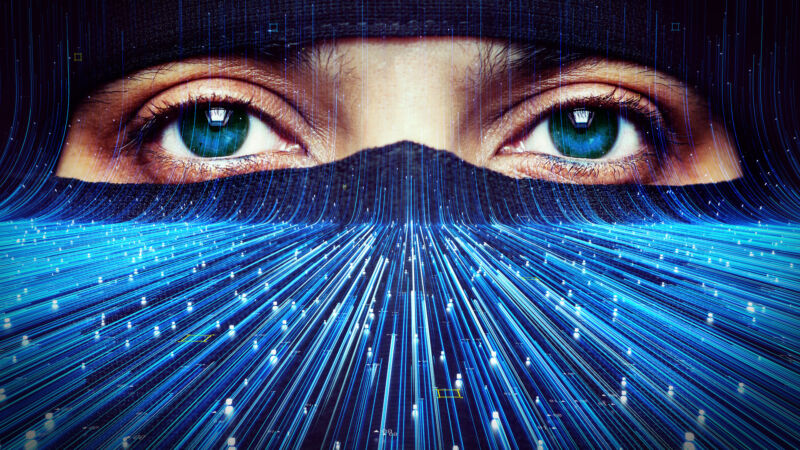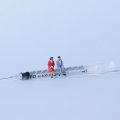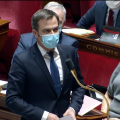
Par Hamid Enayat.
Le 8 janvier 2021, Khamenei a annoncé à la télévision officielle l’interdiction d’importer des vaccins américains, britanniques et français.
Si les Américains ont pu produire le vaccin, ce scandale du coronavirus ne se serait pas produit dans leur pays avec la mort d’environ 4000 personnes en un seul jour. En même temps, il faut fondamentalement s’en méfier, et parfois ces vaccins sont destinés à être testés sur des nations.
Les chiffres officiels en Iran font état de 60 000 victimes du Covid-19. Le président du conseil de Téhéran a déclaré que les chiffres avancés par les autorités ne sont que ceux du cimetière de Behesht-Zahra à Téhéran. De son côté, l’opposition iranienne a annoncé que le nombre de décès dans seulement la moitié des villes d’Iran est proche de 200 000, selon les informations des hôpitaux et des cimetières. Une catastrophe se produit dans le silence le plus complet.
Le monde entier commande, obtient et inocule à la population des vaccins fiables et approuvés par l’Organisation mondiale de la santé. Le très officiel quotidien Jahan-e-Sanat a déclaré le 22 décembre 2020 que « 80 pays ont fourni gratuitement au public 7 millions de doses de vaccin Pfizer. »
Mais selon Khamenei, « si leur usine Pfizer peut fabriquer le vaccin, pourquoi veulent-ils nous le donner ? »
Khamenei tire le rideau
Apparemment, Khamenei est à l’origine des « excuses des dirigeants du régime pour ne pas avoir acheté le vaccin Covid-19 » et du « retard des autorités dans cet achat » , écrivait Jahan-e-Sanat le 17 décembre.
Selon Zafar Ghandi, le chef du Conseil médical en Iran, le 2 décembre 2020, « le coût de la fourniture du vaccin (étranger) Covid-19 en Iran est inférieur à 200 millions de dollars, et ce n’est pas une somme que le gouvernement peut avancer ».
Pourquoi Khamenei est-il opposé à l’importation de vaccins fiables, alors que Pfizer prétend être efficace même contre le nouveau virus Covid-19, hautement contagieux et mutant ?
Les objectifs de Khamenei en Iran
L’interdiction d’importer un vaccin fiable par Khamenei montre que c’est pour lui d’une importance stratégique. Le régime iranien avait auparavant adopté une stratégie d’immunité collective . L’Association iranienne d’immunologie a averti le président iranien Hassan Rohani que sur la base de cette stratégie 70 % de la population serait infectée, faisant entre un et deux millions de morts.
On comprend maintenant pourquoi le régime refuse de prendre des mesures sérieuses comme le confinement. S’il parvient à maintenir la population iranienne concentrée sur la pandémie de Covid-19, cela détournera son attention des autres plaintes qui alimentent un soulèvement potentiel.
Pourquoi une immunité collective ?
Tant que la Covid-19 est présente et touche 70 % de la population, les pauvres, qui représentent plus des sept dixièmes de la société, ne peuvent plus recourir aux protestations de masse ou formuler d’autres revendications. Selon le régime, ces protestations, comme le soulèvement de novembre 2019 où Khamenei et ses dirigeants ont senti le vent du boulet, pourraient conduire au renversement du pouvoir clérical.
Selon Khamenei, le coronavirus est une bénédiction qu’il faut transformer en opportunité. Il agit comme un bouclier contre un soulèvement populaire, retardant l’inévitable.
Une vague d’exécutions et de répression en Iran
Le jeudi 31 décembre, le commandant adjoint de la police nationale, le général Qassem Rezaï, a donné un ordre ignoble aux forces sous son commandement :
Si vous avez arrêté quelqu’un dans un affrontement et que je le vois se tenir debout ici sain et sauf, vous aurez à expliquer pourquoi. S’il avait un couteau à la main, il fallait lui briser la main […] Les droits de l’accusé sont pour après son arrestation.
Il a tenu ces propos délibérément devant la caméra et le public.
Rien que durant la deuxième semaine de décembre, du 12 au 19, douze personnes ont été exécutées dans les prisons iraniennes . Le 31 décembre, trois sunnites ont été pendus à Machhad. Le 3 janvier, trois Baloutches ont été exécutés après de longues années de détention. Mohammad Hassan Rezaï, qui n’avait que 16 ans au moment de son arrestation, a été pendu le 31 décembre, dans un acte cruel violant toutes les normes internationales.
Ces exécutions hâtives ne visent qu’à contrôler une société en ébullition. Et le régime, qui pensait pouvoir le contenir avec la Covid-19, utilise à nouveau l’arme rouillée des exécutions pour contenir les exigences de la population iranienne.
« Le volcan des affamés »
Un expert officiel avait précédemment déclaré qu’ « il faut avoir peur du moment où le volcan des affamés ne sera plus retenu » . Ces derniers mois, des jeunes ont pris pour cibles des centaines de centres des gardiens de la révolution, de la milice du Bassidj et des centres de torture, pour briser le statu quo. Les attaques contre les tribunaux qui prononcent des condamnations à mort ou ordonnent la démolition des masures des pauvres gens font partie des centres visés par les jeunes insurgés.
Le feu mis aux portraits de Khamenei et de Soleimani dans diverses villes symbolise la colère de la jeunesse qui se révolte contre l’oppression et la répression. Bien sûr, c’est un message clair envoyé à Khamenei et au régime iranien.
Quelques mois avant le soulèvement de novembre 2019, le ministre du Renseignement Mahmoud Alavi avait affirmé que 116 de ces équipes d’insurgés avaient été arrêtées en quelques mois et qu’elles étaient affiliées aux Moudjahidine du peuple (OMPI), l’ennemi juré du régime clérical. Khamenei survivra-t-il au volcan des affamés malgré le bouclier du Covid-19 et des exécutions ?
chevron_right







